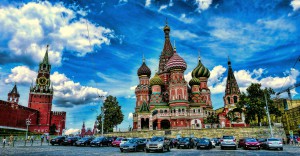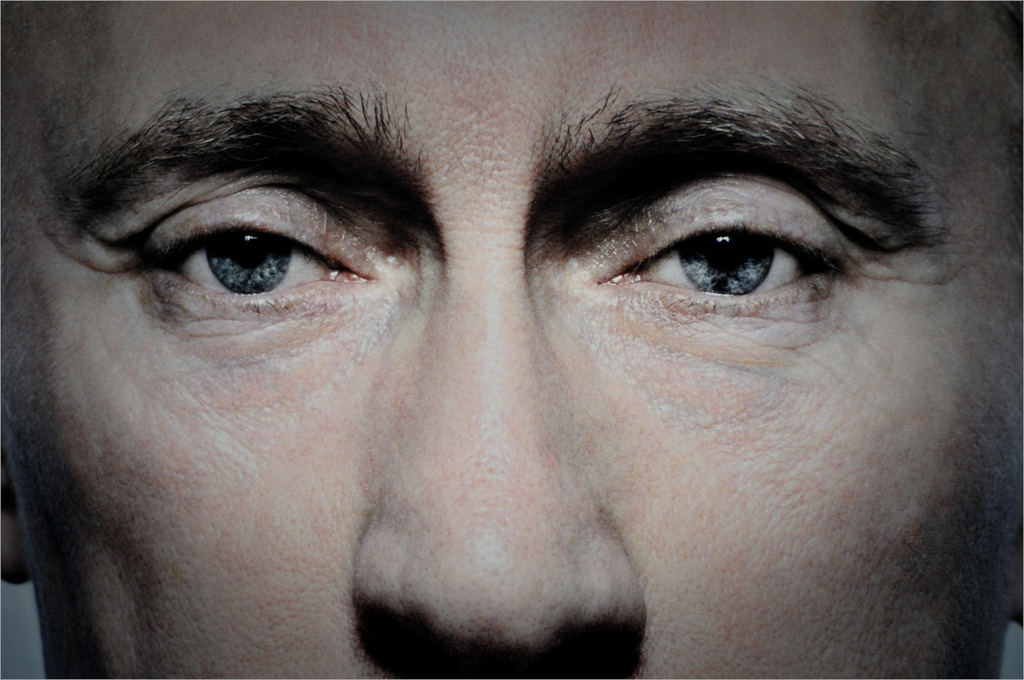“Swedes are reserved, Russians are aggressive, Estonians are indolent, Spaniards are passionate” – how often do you hear such clichés from people around you and how often do you catch yourself reproducing them in your mind? Do these clichés have any real ground? Is it possible in first place to classify all people belonging to this or that particular nationality as “indolent”, “aggressive” or “reserved”? Myself being originally from Russia, there was one more important question, one that arose several months ago as a reflection on a very strained political situation in my region: how does politics influence the spread of these stereotypes among people?
When we see a group of politicians in one state acting in a certain way towards a neighbouring country, there is a great temptation to classify all citizens of this state in the same way you judge their politicians, especially since the latter are official elected representatives. The mass-media only fuels the flame. Creating an “enemy image”, it only simplifies reality and creates distinctions between “us” and “them”. We, the ordinary people, sometimes forget that mass-media has its own agenda, by expressing interests of their sponsors and supports.
Effective intercultural communication itself is an art that needs to be fostered. When I was planning my stay in Sweden, I was worried the political tensions between Russia and Ukraine would make my everyday communication with people from other countries even more complicated. I just wanted to be sure people felt comfortable when I was  around. When I finally arrived in Malmo and started to settle in, getting to know each new person was a struggle because people always asked where I came from. After confessing that I was from Russia, I tried to read people’s thoughts asking myself “will they dislike me for that?”
around. When I finally arrived in Malmo and started to settle in, getting to know each new person was a struggle because people always asked where I came from. After confessing that I was from Russia, I tried to read people’s thoughts asking myself “will they dislike me for that?”
After becoming familiarized with the city and having made friends at the university and dormitory, I decided to ask what their real thoughts were and if the political situation influenced their first impression of me. I got very different answers, and, even though my little survey does not attempt to be scientific, I suppose I got the whole scale of existing opinions, from positive to suspicious or quite negative. Here are a few:
“I think you are a very nice person and you confirm my opinion that Russians are friendly people. In the West, when people talk about Russia, they often think about Putin. But he is just one person and you cannot generalize...”
Dutch student
“I thought that it will be interesting to get to know someone of my age who is from Russia and to hear an insider’s perspective on Russian politics, which is quite incomprehensive to me partly because of (I suspect) – one–sided Swedish media perspective on Putin and the politics he is making”.
Swedish student
“…I think that sometimes media plays a large role in shaping our opinions which is quite evident in Australia. … On our news pages you can find stories about how bad Russia is almost daily. … Personally I think that Russia has a lot of history and traditions that at times other cultures do not understand and therefore they fear”.
Australian student
“The attitude to Russians in Georgia is actually quite negative. But when I came to Sweden, I understood that Russians are MY people – we have much more in common with them than with people from other cultures”.
Georgian student
“You, Russians, have no feelings, you are inhumane… But actually you are the first Russian I have ever met in my life. So this is more of a stereotype”.
Ukrainian student
So what are these opinions all about? When being asked such complicated and even philosophical questions, people usually admit there are good and bad people in any given country and that you never know what kind of person is standing in front of you. The difficult thing is to remember
this relativity in everyday life and the more difficult thing is to apply this rule to the
 citizens of the confronting country. Don’t be too surprised when your neighbour pushes you in a puddle on a busy street, while your supposed-to-be enemy from another country helps you with heavy luggage at a train station.
citizens of the confronting country. Don’t be too surprised when your neighbour pushes you in a puddle on a busy street, while your supposed-to-be enemy from another country helps you with heavy luggage at a train station.
Politics is complicated and often messy, we can admit it. But let’s not mix politics and our everyday life; let’s be unprejudiced and not let mass-media influence our thoughts and make stereotypes ever more engrained in our brains. Because politicians will finally make a good deal out of crisis under mutually agreed conditions, and ordinary people will end up being enemies with their closest neighbours.
By Victoria Yantseva
Image credit:
Picture 1: Mariano Mantel, licensed under CC BY-NC 2.0
Picture 2: firdaus omar, licensed under CC BY-NC-ND 2.0










